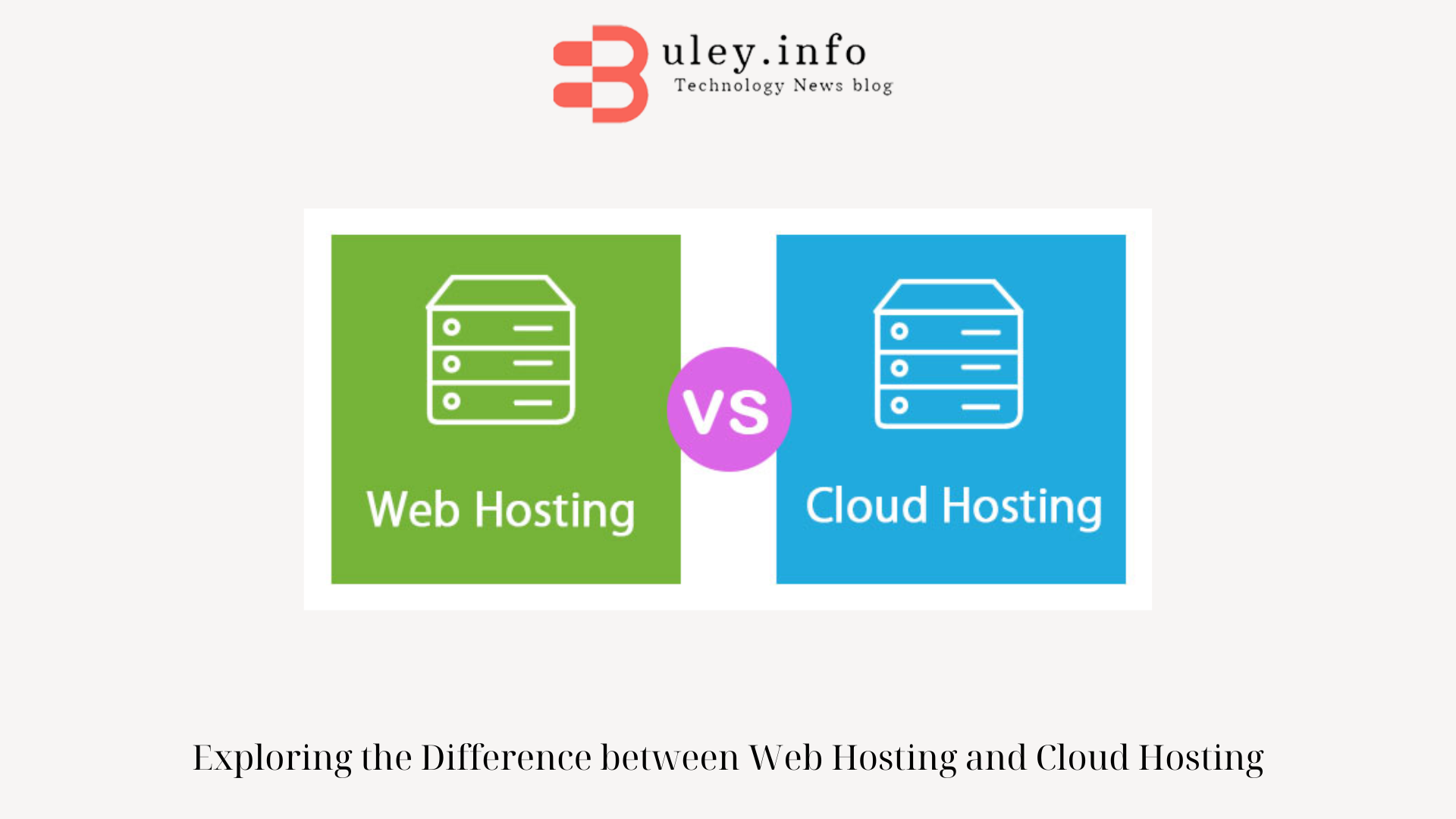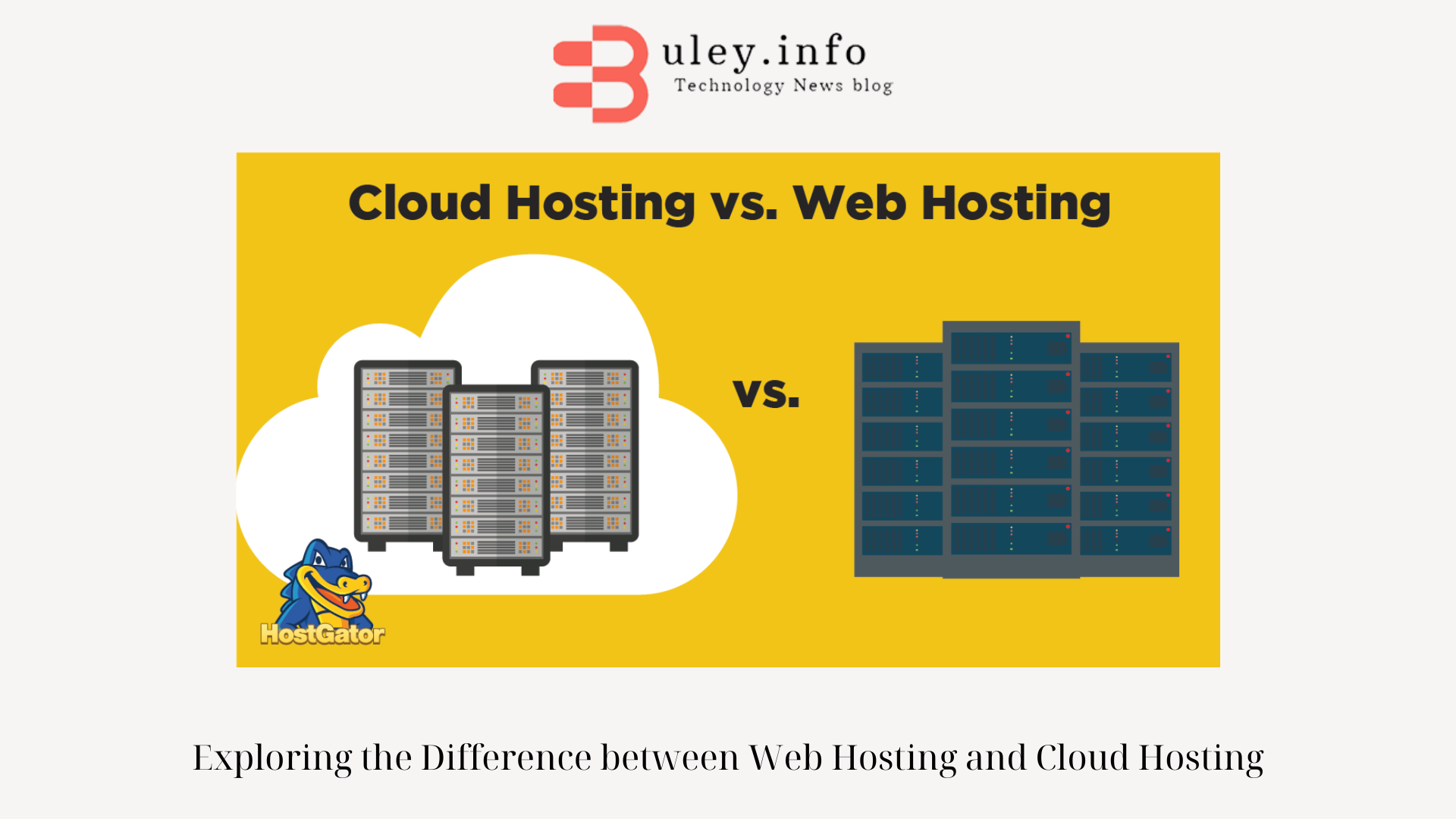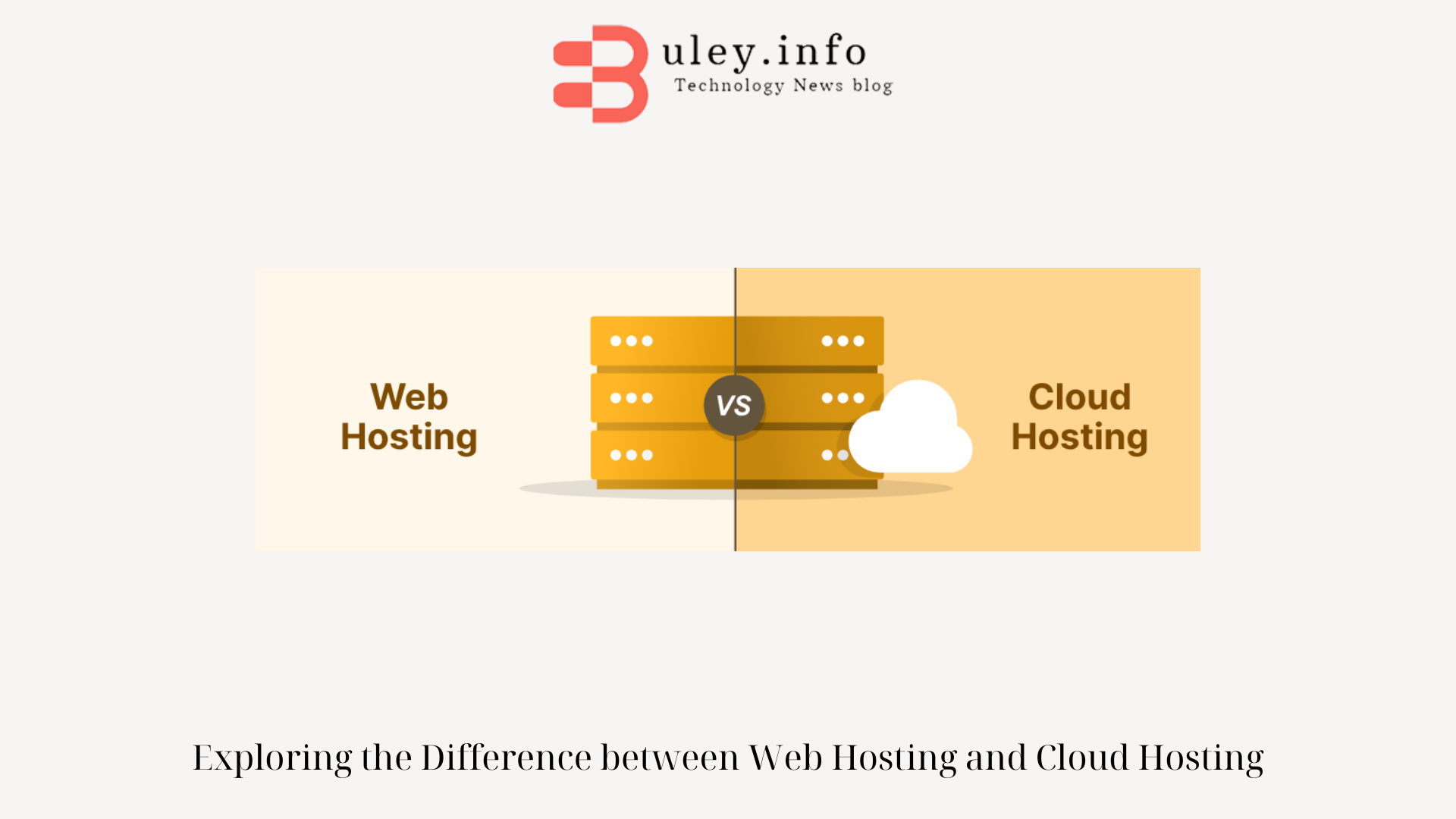In the digital age, having a strong online presence is crucial for businesses of all sizes. Whether you’re a small blog owner, an e-commerce store, or a large enterprise, choosing the right hosting solution is essential and two popular options that often come up in discussions are web hosting and cloud hosting. While they both serve the purpose of hosting websites, there are significant difference between web hosting and cloud hosting. In this article, Uley will explore the distinctions between web hosting and cloud hosting, examining their features, benefits, and use cases to help you make an informed decision for your online ventures.
Exploring the Difference between Web Hosting and Cloud Hosting
- Understanding Web Hosting:
Web hosting refers to the practice of difference between web hosting and cloud hosting website files on a physical server connected to the internet. When a user types your website’s domain name into their browser, their device connects to the server and retrieves the website’s files, displaying it on their screen. Web hosting typically involves hosting multiple websites on a single server, with each website having its own allocated resources such as disk space, bandwidth, and processing power. This shared hosting environment is cost-effective and suitable for small to medium-sized websites with moderate traffic. - The Basics of Cloud Hosting:
Cloud hosting, on the other hand, leverages the difference between web hosting and cloud hosting of a network of interconnected servers distributed across multiple locations. Instead of relying on a single physical server, cloud hosting utilizes virtual resources from this network to host websites. The primary advantage of cloud hosting is its scalability and flexibility. With cloud hosting, your website can tap into additional resources on-demand, ensuring that it can handle sudden traffic spikes without interruptions. This makes cloud hosting ideal for websites that experience high traffic volumes or have fluctuating resource needs. - Scalability and Flexibility:
One of the key difference between web hosting and cloud hosting is scalability. In web hosting, your website’s resources are limited to what is allocated to it on the physical server. If your website experiences a surge in traffic that exceeds its allocated resources, it may slow down or even crash. In contrast, cloud hosting can scale resources seamlessly. The distributed nature of cloud hosting allows for the allocation of additional resources dynamically, ensuring that your website can handle traffic spikes without performance degradation. - Reliability and Uptime:
When it comes to the difference between web hosting and cloud hosting reliability and uptime, cloud hosting often outperforms traditional web hosting. With web hosting, if the server on which your website is hosted experiences technical issues or goes offline, your website will be inaccessible. In cloud hosting, however, your website is not reliant on a single server. It is distributed across multiple servers, so even if one server fails, your website will continue to run smoothly from the remaining servers. This redundancy ensures high availability and minimizes the risk of downtime. - Cost Considerations:
Cost is an important factor to consider when the difference between web hosting and cloud hosting web hosting and cloud hosting. Web hosting, particularly shared hosting, tends to be more affordable as the resources are shared among multiple websites. This makes it suitable for small businesses or individuals with budget constraints. On the other hand, cloud hosting may have a higher price point due to its scalability and flexibility. However, cloud hosting allows you to pay for the resources you actually use, making it a cost-effective option for websites with varying traffic patterns.
See also Choosing the Best Cloud Hosting in India: A Comprehensive Guide
Powered by Inline Related Posts
- Security Measures:
Both difference between web hosting and cloud hosting providers implement security measures to protect websites and data. In web hosting, security is typically handled at the server level, with firewalls, intrusion detection systems, and regular backups being common practices. Cloud hosting, with its distributed infrastructure, often offers additional security features. Data is replicated across multiple servers, reducing the risk of data loss. Additionally, cloud hosting providers usually have advanced security protocols in place, such as encryption, DDoS protection, and regular security audits. - Control and Customization:
Another aspect to consider is the level of control and customization offered by each hosting option. In web hosting, you have limited control over the server settings and configurations since they are managed by the hosting provider. This can be an advantage for users who prefer a hands-off approach to server management. Cloud hosting, on the other hand, provides greater control and flexibility. You have the ability to customize server settings, install software of your choice, and configure the environment to meet your specific requirements. - Use Cases and Recommendations:
The difference between web hosting and cloud hosting depends on the specific needs and goals of your website. Web hosting is well-suited for small to medium-sized websites, personal blogs, or static websites with predictable traffic. It offers a cost-effective solution and is easy to set up and maintain. Cloud hosting, on the other hand, is ideal for high-traffic websites, e-commerce stores, or applications that require scalability, flexibility, and high availability. It provides the resources needed to handle varying traffic patterns and ensures uninterrupted performance. - Hybrid Solutions:
In some cases, the difference between web hosting and cloud hosting is a hybrid hosting solution may be appropriate. This involves combining elements of both web hosting and cloud hosting to create a customized setup. For example, you may choose to host the main components of your website on aweb hosting server while using cloud hosting for specific applications or to handle peak traffic periods. This hybrid approach allows you to optimize costs while benefiting from the scalability and reliability of cloud hosting when needed.
- Conclusion:
In summary, understanding the difference between web hosting and cloud hosting is crucial in making the right decision for your website. Web hosting offers affordability and simplicity, making it suitable for smaller websites with predictable traffic. Cloud hosting, on the other hand, provides scalability, flexibility, and high availability, making it ideal for larger websites or those with fluctuating resource needs. Consider factors such as scalability, reliability, cost, security, control, and your specific website requirements when choosing between the two options. Ultimately, selecting the right hosting solution will ensure that your website performs optimally and meets the needs of your audience.





